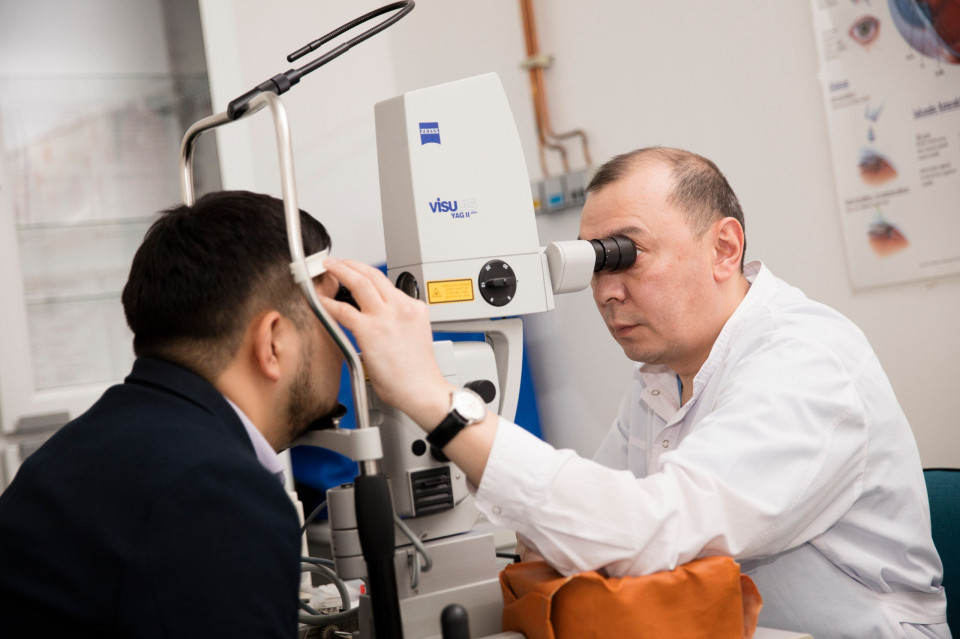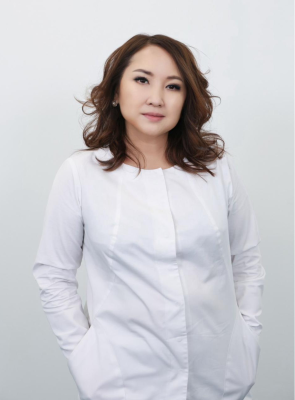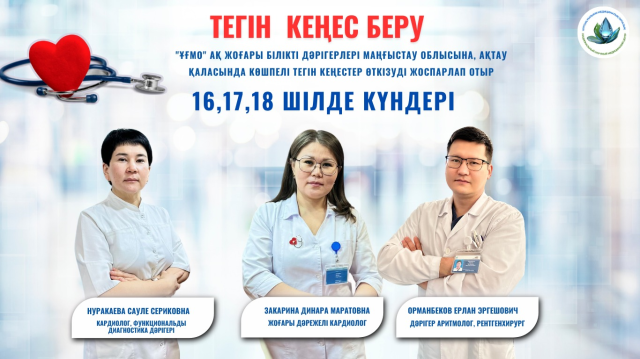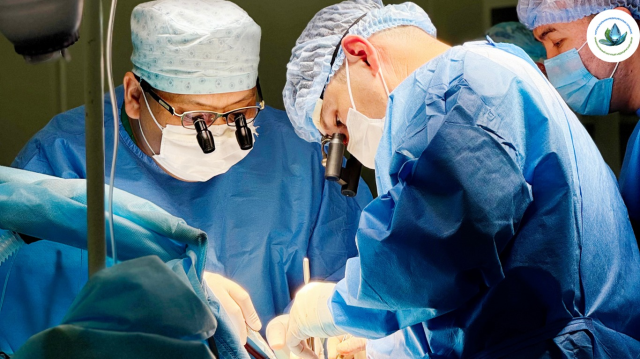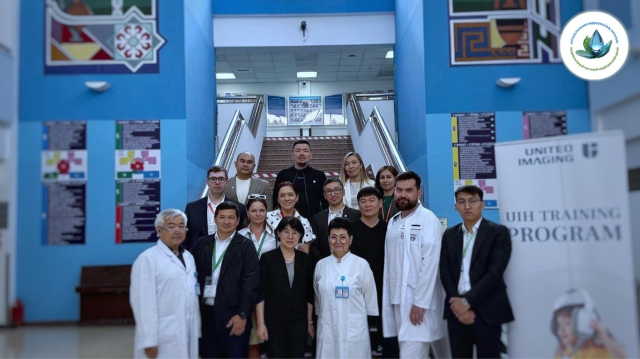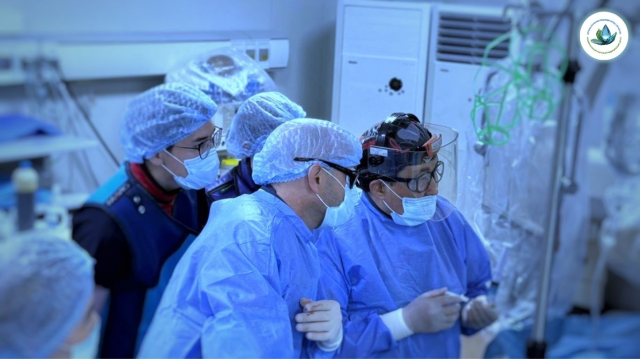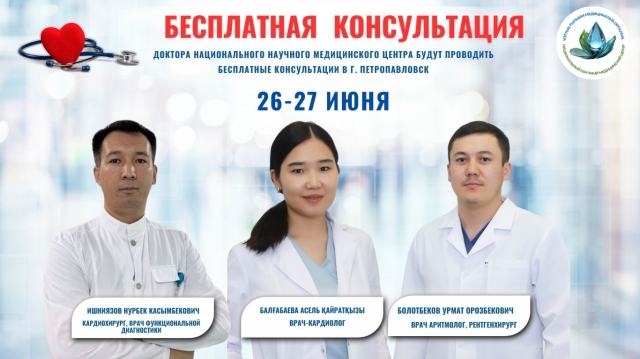An ophthalmologist (oculist) is a specialist who deals with the diagnosis and treatment of various diseases of the eye and optic nerve. Ophthalmologists of the highest category conduct the reception at the Center.
We receive 90% of the information through the visual analyzer — the eyes.
In which cases do they contact an ophthalmologist
Inflammatory and chronic eye diseases, household injuries, and decreased visual acuity require immediate treatment by an ophthalmologist (optometrist).
You should contact this specialist in the following cases:
• you have begun to notice that your eyesight has deteriorated;
• strange pain sensations appeared in the area of the eyes (eyeballs);
• tears are constantly flowing from the eyes, purulent discharge is bothering;
• suddenly you can't see objects clearly near or far;
• bright or sunny light causes discomfort;
• worried about the flashing of "flies" in front of the eyes, the appearance of iridescent circles, colored spots;
• there was an unusual pain in the forehead and temples;
• you had an eye injury;
• you feel that there is a foreign body in the eye;
• eyelids are red, swollen, inflamed and sore;
• feel uncomfortable wearing your own glasses;
• you are planning a pregnancy or are already pregnant.
If there are no complaints, it is recommended to periodically undergo a preventive examination by an ophthalmologist.
Those who have already turned 40 years old need an ophthalmologist's consultation once a year to exclude cataracts and glaucoma. Constant vision monitoring is necessary for those who suffer from diabetes mellitus.
In addition, those who have decided to start using contact lenses should undergo a vision diagnosis by a specialist.
Do not delay visiting a doctor if you notice any symptoms of visual impairment, eye diseases often develop rapidly and can lead to serious consequences, vision may be lost, and then it is difficult (and sometimes impossible) to restore it.
Ophthalmologist services
At the Center, we provide a wide range of ophthalmological services.
We use modern high-precision equipment to diagnose diseases of the visual organs. With the help of detailed computer vision diagnostics, examination results and analyses, we will select glasses and lenses for you.
You can also receive the following types of services in our clinic:
• Visual acuity check;
• examination of the fundus – ophthalmoscopy;
• definition of visual fields;
• selection of an individual eye treatment regimen;
• refraction check;
• measurement of intraocular pressure and detailed diagnosis of glaucoma;
• identification of visual impairments of neurological origin;
• identification of computer allergies and choice of treatment tactics;
• performing minor surgical operations;
• examination of the fundus in pregnant women;
We employ highly qualified specialists, authors of individual techniques and techniques, they will help you find the cause of visual impairment and select an individual treatment regimen.
How is the ophthalmologist's appointment going?
An ophthalmologist (optometrist) comes to an appointment with complaints of loss of visual acuity, they are treated in connection with eye injuries and in some other cases.
At the reception, the doctor will listen carefully to the patient, ask additional questions and conduct the necessary examination. He checks visual acuity and examines the fundus, if necessary, measures intraocular pressure.
You may need additional research or consultation with other specialists (neurologist, therapist, endocrinologist), to whom you will be referred by an ophthalmologist.
Sometimes it is enough to prescribe glasses (or lenses) to solve the problem, in other cases medications are prescribed. Someone needs surgery.
Each patient of our clinic is guaranteed to consult an ophthalmologist who will be attentive to your problems.
What diseases does an ophthalmologist treat?
Ophthalmologists (oculists) of the Center successfully treat the following diseases and vision problems:
• cataracts and glaucoma and other pathologies;
• diseases of the optic nerve and retina;
• inflammatory eye diseases;
• Infectious and viral diseases;
• allergic eye reactions.
Depending on the severity of the disease, the patient is prescribed medication, physiotherapy or surgical treatment.
Diagnosis of ophthalmological diseases
The ophthalmology department of the Center has everything necessary to conduct a comprehensive ophthalmological examination, which allows you to identify the cause of the disease and give an accurate assessment of the patient's condition.
In order for the treatment to be effective, we carry out the following types of diagnostics:
• tonometry (determination of intraocular pressure);
• perimetry (in order to identify a qualitative assessment of light sensitivity);
• visometry (for the purpose of determining visual acuity);
• autorefractometry (diagnosis of the cornea);
• ophthalmoscopy (to detect retinal diseases);
• Ultrasound (for the diagnosis of various eye diseases).
In order to confirm some pathologies and diseases, it is necessary to carry out tests that can be done in our laboratory.
What treatment methods are used
At the Center, we offer various treatment methods that will accelerate your recovery and prevent the development of complications.
Therapeutic treatment
Therapeutic treatment includes:
• local treatment (drops, ointments are used);
• general treatment (taking medications in tablet form, injections, intravenous and intramuscular).
• the use of physical therapy methods.
The course of conservative treatment of the visual system is selected individually, taking into account the characteristics of the body, the degree of vision loss and other nuances.
Patients can be treated in the hospital of the Center.
In our medical center, we perform surgical treatment involving small surgical operations under the supervision of a highly sensitive microscope. We perform operations to remove papillomas, barley and other neoplasms on the eyelids.
We use high-quality foreign equipment for ophthalmic surgery.
The laser equipment used in the Center makes it possible to successfully treat various eye diseases.
Laser treatment
Laser eye treatment makes it possible to accurately and painlessly affect a specific area. The following diseases are treated with the help of laser equipment:
• Treatment of glaucoma;
• Laser intervention for secondary cataract;
• Diabetic retinopathy and retinal vein thrombosis;
• Peripheral degeneration and retinal tears
We perform non-surgical vision correction for various degrees of astigmatism, hyperopia and myopia. We use magnetic and ultrasound treatment of the organs of vision. A combination of different methods is possible to achieve the best result.
How to make an appointment with an ophthalmologist
You can make an appointment with an ophthalmologist by calling +7 7172 57 74 40, +702 094 77 71

